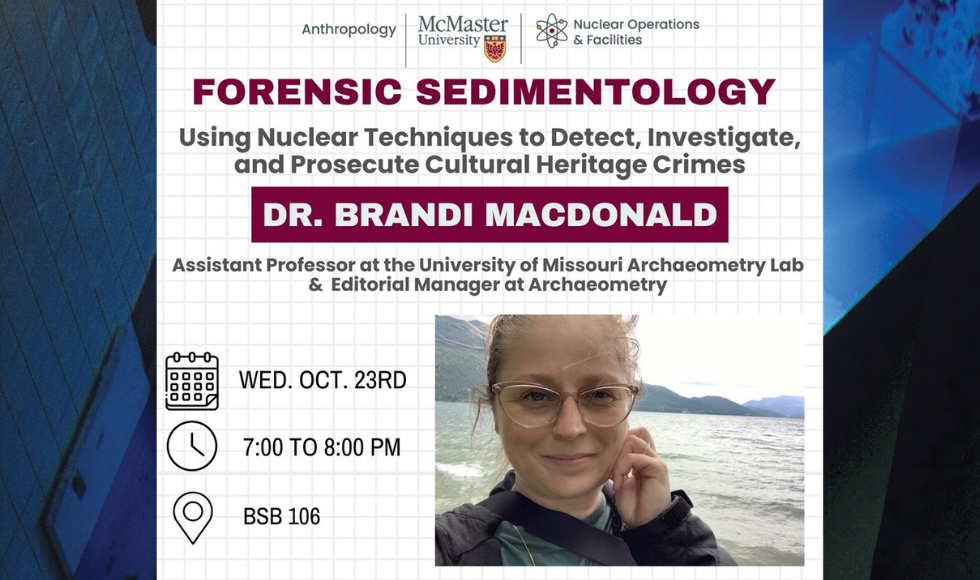#NuclearSciWeek Community Day: Nuclear Forensics and Archaeology

Date: Wednesday, October 23
Time: 7:00 p.m. – 8:00 p.m. with tours at 5:30 p.m. and 8:00 p.m.
Location: Burke Science Building, Room 106 and McMaster Nuclear Reactor
Archaeological resource crime is a wicked problem that disproportionately impacts Tribal and descendant communities. Archaeologists have legal and ethical obligations to collaborate with those communities, alongside law enforcement officers and land managers in the prevention, detection, investigation, and remediation of looting, vandalism, and grave robbing. In the investigation of heritage crime, archaeologists have a unique opportunity to contribute expertise in a widely familiar material: dirt! Dirt and sediments are involved in most archaeological resource crime and are crucial for assessing links between crime scenes and persons, equipment, and items of interest.
Join Dr. Brandi MacDonald, Assistant Professor at the Archaeometry Laboratory at the University of Missouri Research Reactor, for a talk on forensic sedimentology and the use of nuclear techniques to detect, investigate and prosecute cultural heritage crimes.
Dr. MacDonald will present a case study on sediments from violated sites and their vicinities on White Mountain Apache Tribal lands (Arizona, USA) to demonstrate “proof of context”. This approach uses scientific techniques, including trace element fingerprinting by neutron activation analysis and petrography, to characterize context-sensitive sediments that meets standards for forensic evidence contributions to federal archaeological resource crime investigations.
Join us for this exciting talk and an optional tour of the McMaster Nuclear Reactor to see nuclear science in action!
Refreshments will be provided.
Education, Event